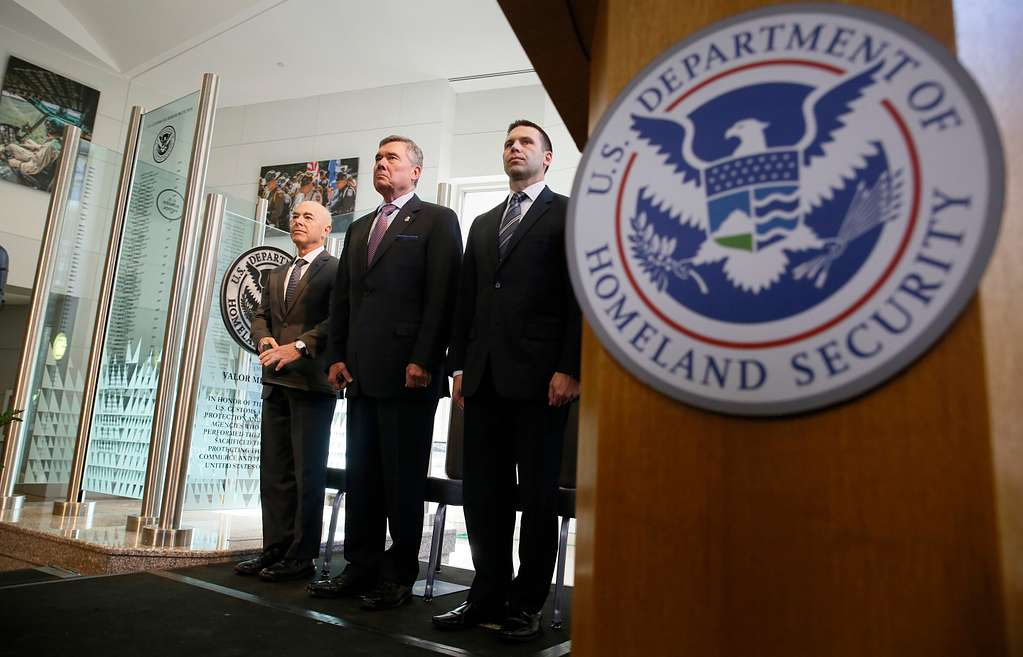 CBP Photo by Glenn Fawcett
CBP Photo by Glenn Fawcett
As Congress Delays FISA Vote, Concerns over Privacy and Partisanship Persist
Section 702 of the Foreign Intelligence Surveillance Act, which enables intelligence agencies to collect communications data over the course of foreign terrorist investigations, is set to expire this month. If lawmakers don’t vote to renew the provision, American intelligence agencies will be limited to open-source and limited human intelligence—a prospect that Ken Wainstein, Under Secretary for Intelligence and Analysis at the Department of Homeland Security, says is untenable.
As of Monday, lawmakers are leaning towards extending the section until it can be addressed again in April. Yet many Americans believe Section 702 should not be retained, at least not in its current form. Controversies surrounding politicization and misuse of Section 702 following the 2020 Black Lives Matter protests and the January 6th investigation heightened concerns that the Section allows intelligence agencies to infringe on civil liberties. Critics cite the Fourth Amendment, which prevents undue search and seizure, and highlight that preventing electronic surveillance is a bipartisan issue: thousands of Americans across the political spectrum have had their data unjustly accessed by spy agencies, ostensibly for foreign intelligence purposes. As a result, both Republicans and Democrats, including Congressman Paul Gosar and Senator Maisie Hirono, have proposed reforms preventing these agencies from having warrantless access to civilian data.
Section 702 is not the only facet of intelligence accused of malfeasance. Separately but simultaneously, the Department of Homeland Security is being sued by Former Director of National Intelligence Richard Grenell and America First Legal for allegedly failing to follow the Federal Advisory Committee Act, which requires advisory groups to be “fairly balanced” regarding points of view and function. The lawsuit alleges that the newly established Homeland Intelligence Experts Group, an advisory committee to provide input on what Under Secretary for Intelligence and Analysis Ken Wainstein calls the “unprecedented challenges” facing its Office of Intelligence and Analysis, is unfairly biased toward the Biden administration. Senators Scott, Paul, Johnson, and Marshall have called for its appointees to be rescinded using similar justifications as those advocating for Section 702 reform: perceived political partisanship within intelligence agencies.
All the while, both foreign and domestic national security threats are rising—and as a result of the digital age, becoming more complex. If Section 702 is allowed to expire, intelligence agencies will lose the ability to collect foreign data at a time when anonymized digital communications are the primary form of communication between bad actors. Intelligence agencies maintain a 98% FISA compliance rate, but ensuring that every anonymous actor is not a U.S. person is a challenge. Without a strong mechanism to collect and analyze these communications, the United States and its allies are at a stark disadvantage against actors who violate American privacy and liberties without hesitation. Experts groups provide much needed support to this end; in addition to rising threats posed by terrorism, fentanyl, and illegal immigration, the Homeland Intelligence Experts Group places special emphasis on navigating digital ecosystems that grant foreign adversaries unparalleled access to individuals in the United States.
In addition to keeping intelligence agencies effective against modern threats, checks and balances are required to protect individual rights and liberties. Striking a balance between maintaining public trust and ensuring requisite secrecy can be difficult, especially in a country that intentionally limits its espionage to preserve its ethics, a position that sets the U.S. apart from its adversaries. Advisory mechanisms can prevent agencies from going too far by providing competent recommendations and ensuring civilian oversight over their implementation. These advisory groups should also be diverse in points of view, though technical competency and ethics ideally take precedence over distance from the common opinion.
Legislators will need to decide whether introducing new privacy and partisanship laws are worth opening up potential national security vulnerabilities. According to an investigation by federal oversight entities, the intelligence sector’s violations of civil liberties were not the result of weak or insufficient legislation but a of current law. Change comes at a cost, and advocates of stronger civil protections will need to pay a premium to ensure new policies are robustly implemented and enforced. A more valuable route may be properly resourcing existing protections and strengthening independent oversight and reporting mechanisms. A balanced strategy is essential to safeguard American civil liberties while allowing agencies the flexibility to effectively defend our nation’s future.





